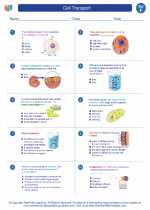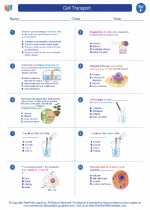Gene
A gene is a unit of heredity that is transferred from a parent to offspring and is held to determine some characteristic of the offspring. Genes are composed of DNA and are located on chromosomes within the cell nucleus.
Structure of a Gene
A gene is made up of DNA, which is a long molecule that is composed of four types of nucleotides: adenine (A), thymine (T), cytosine (C), and guanine (G). These nucleotides are arranged in a specific sequence within the gene, and this sequence determines the specific instructions for building and maintaining an organism.
Functions of Genes
Genes contain the instructions for producing proteins, which are essential for the structure, function, and regulation of the body's tissues and organs. Genes also play a role in determining traits such as eye color, hair color, and susceptibility to certain diseases.
Study Guide
- What is a gene?
- Describe the structure of a gene.
- What are the functions of genes?
- How are genes inherited from parents to offspring?
- Give an example of a genetic trait determined by a gene.
[Gene] Related Worksheets and Study Guides:
.◂Science Worksheets and Study Guides Sixth Grade. Cell Transport

 Worksheet/Answer key
Worksheet/Answer key
 Vocabulary/Answer key
Vocabulary/Answer key
 Vocabulary/Answer key
Vocabulary/Answer key
